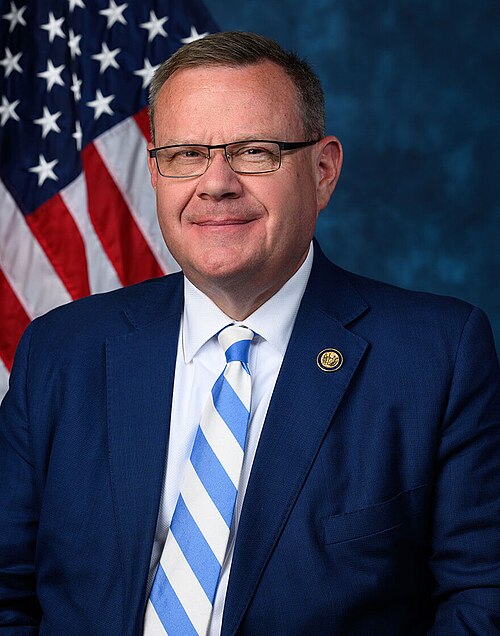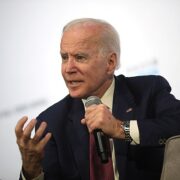
Fresh off a string of decisive victories in Tuesday’s elections, Senate Democrats are signaling they have no intention of backing off the longest government shutdown in U.S. history—arguing that a quick retreat would squander the political momentum they just reclaimed at the polls.
It’s always been about “branding” and not about anything else.
Sen. Chris Murphy, a Democrat from Connecticut, told Punchbowl News on Thursday that folding now would inflict “pretty substantial damage” on a Democratic brand that voters had only just revived. “There will be some pretty substantial damage done to a Democratic brand that has been rehabilitated, if on the heels of an election in which the people told us to keep fighting, we immediately stop fighting,” Murphy said. He pointed to the party’s wins in California, New York, New Jersey, and Virginia as evidence that voters endorse a firm stance.
🚨BREAKING — @ChrisMurphyCT on FLY OUT DAY says DEMS will damage their brand if they don't keep fighting on Obamacare now.
"We're certainly meeting the moment right now. But I think there will be some pretty substantial damage done to a Democratic brand that has been…
— Jake Sherman (@JakeSherman) November 6, 2025
With the 2026 midterms already on the horizon, Murphy warned that retreating without extracting major concessions could leave the party’s base dispirited heading into the next cycle, noted The Daily Caller. Sen. Bernie Sanders, who caucuses with Democrats, pushed the argument further on Wednesday, telling reporters that yielding now would be politically “devastating.” “I think all over this country people are saying, ‘Please Democrats, you haven’t been strong in the past. Stand tall now, protect us,’” Sanders said. “The Democrats now are winning because they’re standing with working people. So, to answer your question, if they cave now and go forward with a meaningless vote, I think it will be a horrible policy decision, and I think politically, it will be devastating to Democrats.”
At the center of the Democratic position is a demand for a multi-year extension of enhanced Obamacare subsidies set to expire next month. Republicans have countered with three full-year spending bills, a commitment to revisit the reinstatement of laid-off federal workers, and a guaranteed vote later on subsidies—but Democrats have rejected that sequencing.
Behind the scenes, Republicans made a fresh bid to break the stalemate, offering a package they hope can restart closed agencies and give Congress momentum on long-stalled appropriations. According to Politico, GOP negotiators proposed advancing three full-year spending bills—the Agriculture-FDA, Military Construction-VA, and Legislative Branch measures—while opening the door to rehiring federal workers laid off during the shutdown. Two people familiar with the talks said the rehiring component was added as a new sweetener to draw Democrats toward a deal before a pivotal closed-door caucus lunch.
Sen. Susan Collins, a Republican from Maine, told reporters that “those who were RIF’d during the shutdown should be recalled,” aligning with Democratic demands that any agreement reverse the “reductions in force” ordered by President Donald Trump. Sen. Jeanne Shaheen, a Democrat from New Hampshire, one of the Democratic negotiators, echoed that position Thursday morning, saying “we need to make sure that federal employees who have been RIFed are able to come back to work.” While the GOP proposal would not, on its own, reopen the government, it would allow leaders to attach a stopgap measure to the full-year package—a sequencing that could end the shutdown while locking guaranteed funding for key programs, including SNAP, through next September.
Not every Democrat ties the shutdown calculus to Tuesday’s results. Newly sworn-in Sen. Angela Alsobrooks, a Democrat from Maryland, told The Daily Caller that the two issues are separate. “We’ve not seen the cost of groceries come down and I think the American people want us focused on them and their kitchen table issues,” Alsobrooks said. “I think whether we have this shutdown or not, we have to address the cost of healthcare and the cost of affordability for America.”
Meanwhile, the shutdown’s strain on daily life is becoming harder to ignore. The Department of Transportation warned Thursday that flight schedules at 40 major airports will be cut starting Friday if no agreement emerges. Air-traffic controllers, now short a second paycheck, have turned to DoorDash and Uber to bridge the gap.
The Trump administration has used tariff revenue to keep the WIC program operating and to cover roughly half of November’s SNAP payments.
[Read More: More Foreign Spies Found On Campus]











